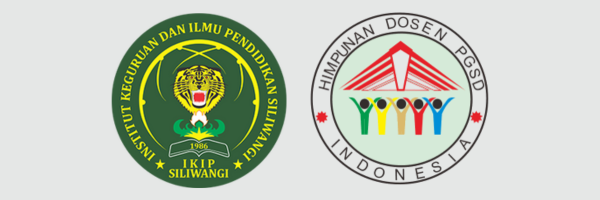THE EFFECT OF REALISTIC MATHEMATICS EDUCATION (RME) ON THE UNDERSTAND MATHEMATICAL CONCEPTS SKILLS OF ELEMENTARY STUDENTS USING HYPOTHETICAL LEARNING TRAJECTORY (HLT)
DOI:
https://doi.org/10.22460/pej.v4i1.1509Abstract
The background of this research is the difficulty in teaching mathematics concepts to fourth graders in elementary school. So we need activities that can bridge the initial abilities of students with abilities that must be mastered by students. One of the alternatives that can bridge students to learn mathematical concepts is by implementing Realistic Mathematics Education (RME) learning using Hypothetical Learning Trajectory (HLT). The research is aimed to describe and analyze the existence of significant differences in improvement of students’ understanding mathematical concepts skills who learned and not learned used Realistic Mathematics Education (RME) with HLT. This research method is quasi-experimental with the pretest-postest nonequivalent design. The data collection instrument used was a understanding mathematical concepts skills test. The population of this research is all fourth grade students in one elementary school located in the district of Tawang, Tasikmalaya. The results showed that based on the data analysis N-gain scores understanding mathematical concepts skills using the Mann-Whitney U test, the value of sig. 0.033 is less than the significance level (𛼠= 0.05), then H0 is rejected and Ha is accepted. So, it can be said that the increased understanding the mathematical concepts skills of the experimental class is higher than the control class. therefore, it can be concluded that there is a significant difference in improvement students’understanding mathematical concepts skills who learned and not learned used RME with HLT. The recommendation of this research is to conduct further research that can develop RME-based Learning Trajectory in mathematics.
Keywords: Mathematics; Realistics Mathematics Education, Understanding mathematical concepts skills; Elementary education; Fraction.
References
Budiyono, A., Kusumaningsih, W., Albab, I. U. (2019). Desain Pembelajaran Luas Lingkaran dengan Konteks Explore Dapur Berbasis Realistic Mathematics Educatio (RME) di Kelas VIII Sekolah Menengah Pertama (SMP). Imajiner: Jurnal Matematika dan Pendidikan Matematika, 1(4). 37-44.
Depdiknas. (2006). Standar Isi Mata Pelajaran Matematika SD/MI. Jakarta: Depdiknas.
Cohen, et al. (2007). Research methods in education. (Sixth Edition). New York: Routledge.
Gulo, W. (2008). Strategi Belajar Mengajar. Jakarta:Grafindo.
Jbeili, Ibrahim. (2012). The Effect of Cooperative Learning with Metacognitive Scaffolding on Mathematics Conceptual Understanding and Procedural Fluency. SPRING: International Journal for Research in Education (IJRE), 60.
Killpatrick, J., Swafford, J., & Findell, B. (2001). Adding It Up: Helping Children Learn Mathematics. Washington, DC: National Academy Press.
NCTM. (1989). Curriculum and Evaluation Standards for School. Reston, VA: NCTM.
Sadirman, A., M. (2010). Interaksi dan Motivasi Belajar Mengajar. Jakarta: PT. Raja Grafindo Persada.
Sarama, J., & Clements, D., H. (2009). Teaching Math in the Primary Grades The Learning Trajectories Approach. [Online]. Diakses dari: www.naeyc.org/files/yc/file/Primary_Interest_BTJ.pdf (08 April 2018)












